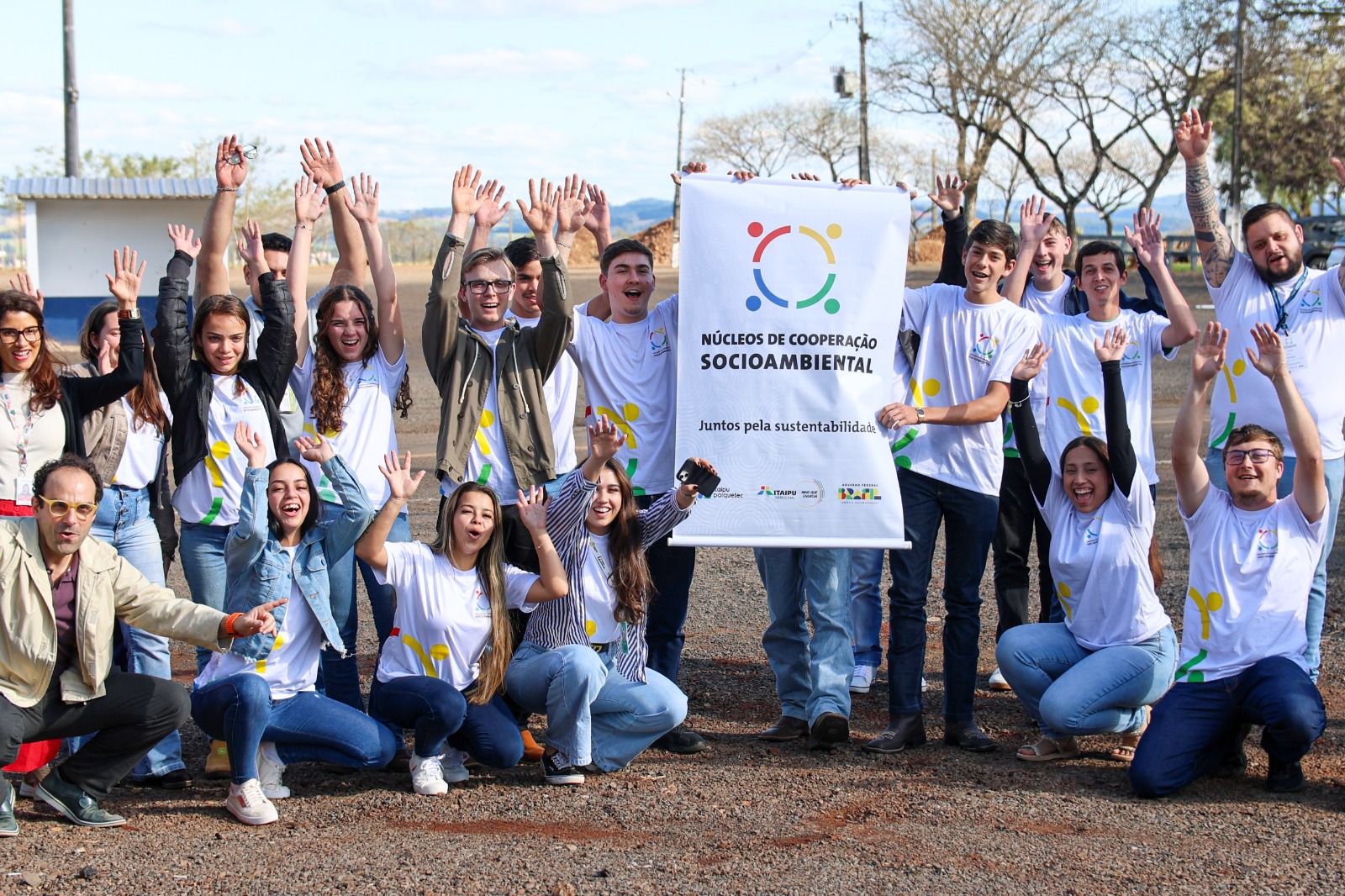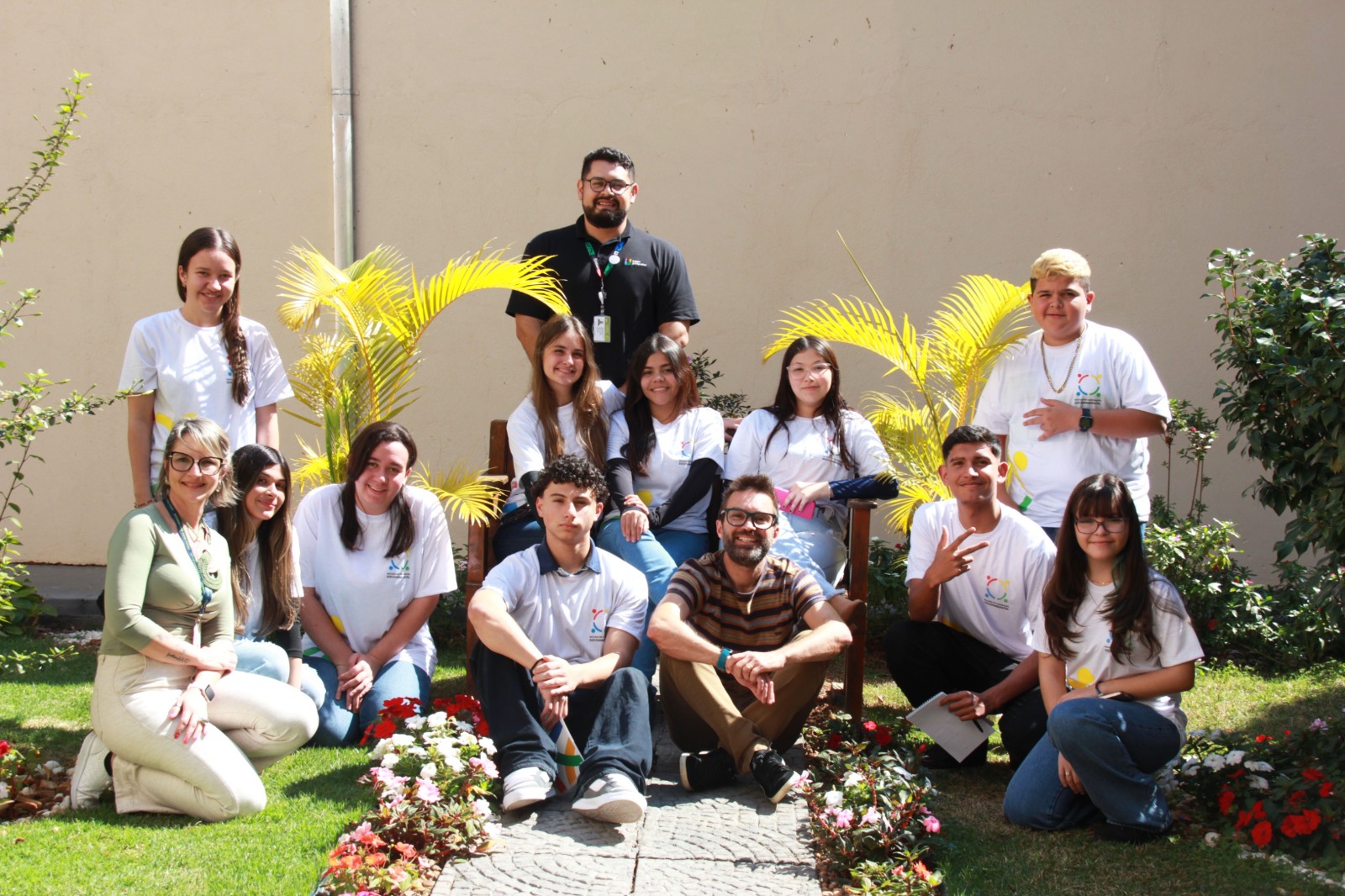Project Mobilizes Residents from Over 400 Municipalities in Mato Grosso do Sul and Paraná to Address Socioenvironmental Issues
Territorial hubs surrounding the Itaipu Binational Hydroelectric Plant identify problems and potential solutions with the company’s support, in coordination with Brazilian government policies. The results of the initiative will be presented at COP30

By Itaipu Binacional
In the area surrounding the Itaipu Binational Hydroelectric Plant, in southern Mato Grosso do Sul and Paraná, Socioenvironmental Cooperation Hubs (NCS) comprising representatives from government and civil society are working together to identify the social and environmental challenges faced by populations in more than 400 municipalities and to seek solutions. The initiative, called the Participatory Governance Project, is led by Itaipu Binacional and Itaipu Parquetec. The results of this experience will be presented by the company during COP30 in Belém (PA).
The initiative was created to strengthen and integrate Brazilian government policies in the region where the plant operates. The action covers 399 municipalities in Paraná and 35 in southern Mato Grosso do Sul.
The experience of the Participatory Governance Project and the Socioenvironmental Cooperation Hubs will be featured in the COP30 Green Zone during the panel “Leaving No One Behind: Financing and Justice for the 2030 Agenda in the Territories,” on November 13.
Created in 2024 under the Itaipu More Than Energy program, 21 NCS have been organized so far. Initially, governmental and civil society institutions in the territories received invitations from Itaipu to participate. Each organization then submitted a letter of adherence and appointed two representatives. The groups remain open to new members as each hub’s work progresses.
Itaipu Binacional’s Brazilian Director-General, Enio Verri, emphasized that the program promotes strong social mobilization. “With these hubs, the goal goes far beyond executing isolated projects. Solutions emerge from local realities and return to the territories as public policies. More than a coordination network, each hub is a living space for collective building, listening, learning, cooperation, technical development, communication, political engagement, and organizational growth,” said Verri.
The hubs focus primarily on environmental, economic, and social issues. Topics under discussion include agroecology, diversification of the economic matrix, solid waste management, environmental education, and forest restoration.

How the Hubs Work
So far, the work has included mapping the main challenges faced by local communities, holding group meetings by municipality, identifying three priority issues for each area (environmental, social, and economic), and analyzing the most pressing problems by identifying their causes, consequences, and key stakeholders.
Rosani Borba, manager of the Participatory Governance Program at Itaipu Binacional, explained the next steps: “In 2026, the challenge will be to reach phase 5 of the project, when we will establish sustainability measures to ensure the hubs have long-term vitality and lasting impact,” she said.
The hydroelectric company has allocated financial resources for implementing collective projects proposed by the hubs, through partnership agreements currently under development.
Educational Efforts
In addition to providing structure for the creation and continuity of the 21 hubs through meetings, Itaipu—via a partnership with Itaipu Parquetec—organizes workshops and technical training courses for group members and local communities.
In September 2025, Itaipu also launched the educational campaign “SDGs in Practice: The 2030 Agenda for Territorial Transformation,” which will travel through 21 cities in Paraná and southern Mato Grosso do Sul, holding seminars to bring the topic closer to local realities.
Between April and June this year, the company also conducted an educational campaign for the NCS featuring biologist and science communicator Átila Iamarino, which drew around 6,000 participants. The theme was “Climate Change and COP30.”
Translation: Tadeu Azevedo (POET/UFC)
Proofreading: Michel Emmanuel Félix François (POET/UFC)
